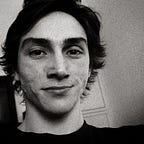Documenting Reality
What is Documentary?
In it’s simplest form documentary film is a work of non-fiction intended to document an aspect of reality for the purpose of education, instruction or maintaining the historical record. Originally known as actualities most films made before 1907 showed everyday activities. The term documentary was coined by British documentarian John Grierson who described the form as “The creative treatment of actuality” (Bluemel, 2009). Documentary filmmakers are not indifferent from those who work in the space of fiction as they must also plan around story structure, cinematography, sound and editing with most documentarians taking inspirations from their fiction counterparts (Pramaggiore,2011).
Director Kevin MacDonald’s take on documentaries describes real life as being so much more interesting and so much more bizarre than anything you can make up (Ferrari, 2008). While author Sheila Curran Bernard sees’s one of the biggest misconceptions of documentary filmmaking is that it happens spontaneously and it is fairly common for a story to reveal itself over the course of the production or even as late as the editing room (Bernard, 2013). I feel this quotes even though they seem dissimilar actually work really well together as MacDonald reconfirms the idea of reality being stranger than fiction but Bernard amends the notion by saying even though the story is truthful the reality that the documentary portraying is usually a part of or a dissection of a larger story world that has been edited to be more entertaining for audiences. Which I relate to how I see documentaries as they make day to day life seem extraordinary at times but if you as Joe Citizen wouldn’t be able to find these stories just by walking outside, they take time, research, passion and a tonne of effort.
This is where the differences and similarities of drama really come into play. Even though the equipment some production processes are similar from pre to post and sometimes a massive scale, budget and documentaries can even use dramatised scenes as part of recreation sequences but that’s basically where the major similarities end. Most documentarians are part of a small crew, sometimes consisting of only themselves and equipment is as minimal as possible, often using different cameras throughout (Ferrari, 2008). Drama directors are able to mould the actors in their scenes to fit their vision and project while in a documentary the directors need to mould themselves to their subjects while filming to be able to get them comfortable enough to tell their stories. The final stories that are told in drama can be completely fictional or based on a true story but are completely scripted from the beginning while documentaries can have written aspect and reasonable amount of writing when it comes to planned questions or angles to chase but the story comes down to what the factual information they are able to dissect from their subjects and as stated earlier the final story may not come to fruition until the filming is completed and the project is in the editing room during post production (Pramaggiore,2011).
“Documentary filmmaking is about being inspired by the moment. It’s about the joy of letting something affect you and respond. Whether it’s with your camera or whether it’s you as a person if you’re the interviewer.” This quote from Jennifer Fox resonated throughout the whole film, Capturing Reality, even though each filmmaker worded their reasoning differently it seemed to always come down to having a passion about their story and having characters that inspire them to push their work further.
Bernard, S. (2013). Documentary storytelling (1st ed.). Burlington, MA: Focal Press.
Bluemel, K. (2009). Intermodernism: Literary Culture in Mid-twentieth-century Britain (1st ed.). Edinburgh University Press.
Ferrari, P. (2008). capturing reality: the art of documentary cast. Canada: National Film Board of Canada.
Pramaggiore, M.(2011). Film: A critical introduction. (3rd ed.). London: Laurence King Publishing.
